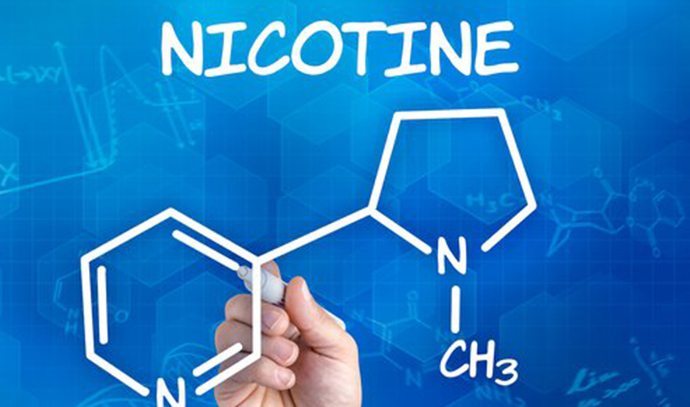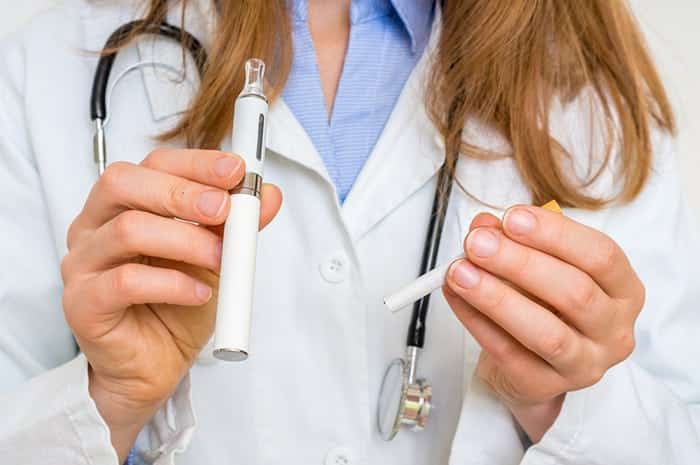A new study shows categorically vaping is not toxic, but there is some risk to health involved albeit minimal.
A group of UK health experts has welcomed the study and say no one as ever said the use of e-cigarettes was completely risk free.

And both the authors of the report and leading scientists point out that vaping is still much much safer than smoking.
To established vapers and those who’ve watched the evidence on the safety of e-cigarettes unfold, this may seem like nothing new.
However, this new study from the Committee on Toxicity of Chemicals In Food, Consumer Products and the Environment [COT], was commissioned by Public Health England.
PHE is the organization – soon to be replaced – that famously concluded vaping is 95% safer than smoking, and is part of the ongoing review of the safety of e-cigarettes.
The team from COT trawled through a vast array of scientific studies into all aspects of e-cigarettes and health including both what you could call pro and anti-vape.
As the final report points out – there are very many such studies with new ones cropping up almost on a daily basis.
Add to that the fast moving pace of technology around vaping – and it’s a very fluid scene.
OK, so what exactly does the new study say?
There’s a lot of scientific mumbo jumbo to cut through, but a couple of key points jumped off the page to my very unscientific eye including:
Vaping Is NOT Toxic – Propylene Glycol [PG]
In a nutshell there’s no real health risk attached to PG used in e-liquids – and NO risk to passers by once again blowing the so called ‘passive vaping‘ theory out of the window.
COT states:
- The available evidence base indicated low concern for the likelihood of adverse health effects in users from short to medium term exposure to PG from E(N)NDS. However, the effects of long-term repeated exposures are unknown.
- Based on the data set examined, exposure to PG in ambient air where E(N)NDS products are used is unlikely to represent a risk to bystanders.
Read Laura-ann’s superb guide for more info: VG VS PG In E Liquid: All You Need To Know
Vaping Is NOT Toxic – Vegetable Glycerine [VG]
The study echoes the findings from those in VG with COT again – simply replace PG with VG!
As I have written very many times, all those anti vaping scare stories screaming about the so called dangers of passive vaping should now be silenced forever.
We shall see!
Vaping Is NOT Toxic – Nicotine
Not such good news if I’m honest, however the COT report does seem to cop out a little for my liking.
It suggests that whilst those looking to quit smoking might benefit from nicotine infused e-liquid, never smokers that take up vaping may become ‘addicted’.
If you look at the statistics on never smokers taking up vaping using nic based vape juice, you’ll see the figure is so tiny it barely registers.
It also reckons dual users – as in those smoking and vaping on a quit journey – may be getting more nicotine than desired.
The COT report spends a long time on what science already knows about the effects of nicotine on the human body – very similar to caffeine – but has concerns about reported poisonings from ingestion of e-liquids.
Again, that’s a rare event and children in particular are far more likely to become ill from drinking household cleaners or alcohol than the rare instances where e-liquids are concerned.
As to the effects of so called ‘passive vaping’ and nicotine, again the study urges caution adding:
Bystanders are likely to be exposed to some nicotine in ambient air where ENDS products are used, which may have some associated effects.
I’ve looked at very many scientific studies around the last point and most if not all conclude the amount of nicotine in a typical vape cloud is so small as not to be toxic.
But hey, as I said, COT is erring on the side of caution in my layman’s view.
UK Health Experts Praise Pro Vaping Report
Overall the the COT report is yet another seal of approval and will undoubtedly have a powerful effect on the UK Government’s future e-cigarette legislation.
Obviously the whole issue around nicotine puts a bit of a damp squib on things, but nic has been the ‘big bad wolf‘ around health for years given its association with smoking.
Even COT points out that nicotine along with PG and VG are NOT carcinogenic – as in at risk of producing cancer – so it isn’t all bad.
Summing up the study, Alan Boobis, chair of COT, said:
Our assessment on e-cigarettes largely reinforces the scientific consensus to date on their relative safety, that while not without risk they are significantly less harmful than smoking.
You cannot be clearer than that…are you watching America?
As I said at the beginning the COT study has been welcomed by the wider UK health community.
I usually struggle to find quotes from the ‘experts’ however in this case they have been queuing up in their droves lol.
So here’s a quick breakdown of the best ones:
Prof Jacob George, Professor of Cardiovascular Medicine and Therapeutics, University of Dundee said:
The report correctly highlights that, as a comparative risk, vaping is less harmful than smoking tobacco cigarettes.
Prof Peter Hajek, Director of the Tobacco Dependence Research Unit, Queen Mary University of London (QMUL), said:
This new report confirms that vaping is much less dangerous than smoking.
If you are a smoker and find quitting difficult, switching to vaping is the next best option.
Dr Debbie Robson, Nicotine Research Group, National Addiction Centre, King’s College London, said:
In line with PHE commissioned annual evidence reviews that our group produce, those who both vape and smoke should be encouraged to stop smoking as soon as they can, and people who have never smoked should avoid taking up vaping and never start smoking.

Final word to long time champion of e-cigarettes, Prof John Britton, former Director of the UK Centre for Tobacco & Alcohol Studies and Consultant in Respiratory Medicine, University of Nottingham, who said:
The findings of this new report confirm that while not harmless, e-cigarettes are substantially less harmful than smoking tobacco.
This conclusion firmly endorses the UK policy of recommending vaping as a practical and effective means for smokers to prevent harm from continued nicotine use, and provide welcome, authoritative reassurance that for smokers who find it difficult to quit smoking, vaping is the obvious next best option.
Indeed vaping is the very best way to quit smoking as millions of us around the world can attest.
However, until Governments such as those in the USA and India to name but two embrace this fact, millions if not billions of smokers will die slow and painful deaths.
And the blood will be on their hands…
One more time…
Vaping is NOT toxic!









Hey Austin,
Walk outside on a busy street. Take a breath of “fresh” air.
You just breathed in more metals, and lots of seriously toxic substances, than vaping for quite a long time.
California Department of Health Vape Shop study. The air was significantly worse outside the vape shop than inside where employees and 13 folks were vaping huge clouds.
Neil, How about a link to the report? Thanks!
The link is in the first half of the article 🙂 here you go: https://cot.food.gov.uk/sites/default/files/2020-09/COT%20E%28N%29NDS%20statement%202020-04.pdf
i’m a pro vaper. But was there any new research into the toxic metals inhaled produced from the coils? This is way more concerning than the 6% nicotine i’m vaping that I already know is negligible.
The last research was this: https://www.ecigclick.co.uk/no-vaping-wont-give-you-brain-damage-due-to-heavy-metals/
Hey Neil,
The study says that there were metal nanoparticles and silicates present in the aerosol.
It also said that “Flavourings should be suitably assessed for potential inhalation toxicity, as safety for use in E(N)NDS cannot be assumed based on their safety for use in food.”
So, I suppose if we were vaping pure PG, VG, and nicotine, you could start to make the case that it’s not toxic, if you ignore the effects that nicotine have on the body.
It would be fair to say from the information in this study that vaping is LESS toxic than smoking. But to assert that “Vaping Is NOT Toxic Say UK Health Experts” is just not true.
I take your point…